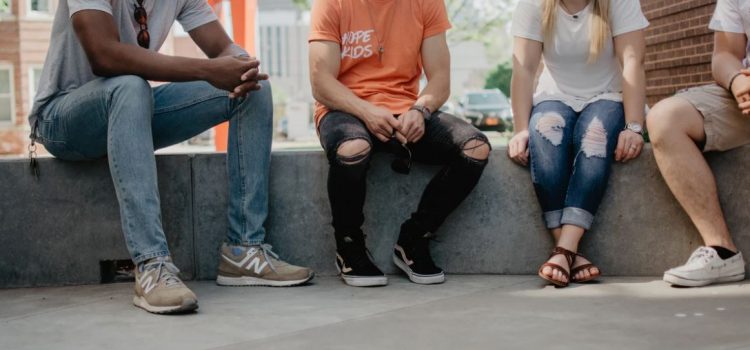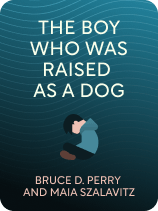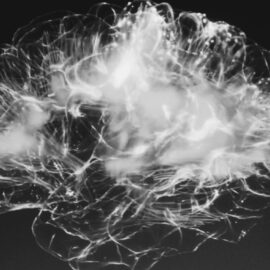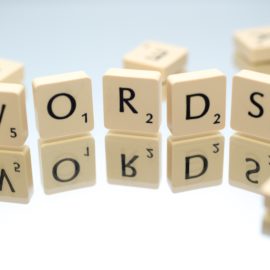

This article is an excerpt from the Shortform book guide to "The Boy Who Was Raised as a Dog" by Bruce D. Perry and Maia Szalavitz. Shortform has the world's best summaries and analyses of books you should be reading.
Like this article? Sign up for a free trial here.
How are friendships and mental health related? Can being part of a community boost your mental health?
Friendships and mental health are linked because having social support decreases the likelihood of lasting illness. Seeing how social support can benefit patients proves how valuable friendships are, and it shows us why being a good friend is important.
Take a look at the importance of friendship in this case study on healing from trauma.
Children Helping Each Other: Peter’s Case
We will take a look at how friendships and mental health are related, using the case of Peter, who was born in a Russian orphanage and only received a few minutes of basic interaction per day. As such, he missed out on vital caregiving responses like those described earlier. When he started school in America, he had severe deficits in language and social skills and was prone to long, frightening, and aggressive outbursts.
Peter’s peers feared him and didn’t interact with him, which made things worse. Once his psychiatrist visited Peter’s class and explained Peter’s background and why he behaved the way he did, the other children opened up to Peter. They invited him to play, sometimes even arguing over who got to be his partner in class activities. Peter improved rapidly as a result of these supportive relationships, and his psychiatrist explained that these children gave him more therapeutic treatment than the adults in his life ever could have.
(Shortform note: Behaviors that lead to social ostracism may result from trauma, but they can also be characteristic of neurodivergent conditions like autism: Research suggests that autistic children are eight times more likely to experience social ostracism than their non-autistic peers. Being ostracized by peers results in lower self-esteem, emotional and academic difficulties, misbehavior, and social avoidance. In the same way that educating Peter’s peers about trauma helped them accept him socially, it’s possible that educating children about neurodivergent conditions could reduce the amount of alienation and isolation such children experience.)
The Importance of Community
Many of these cases highlight another major point: the importance of community in child-rearing. He explains that humans are extremely social creatures, and because of this, relationships are the most important factor in both facilitating healthy development and healing trauma. Unfortunately, he says, our society has become more and more isolated over the past few centuries. Whereas people used to exist in small communities that all contributed to childcare, people today are increasingly living in isolation, leading to higher rates of mental illness and fewer caregiving resources for families.
In older societies, a parent’s lack of knowledge about child-rearing would have been supplemented by the community, but because we’ve shifted so far away from communal living, it tends to fall solely on parents (and especially mothers) to provide for children’s vast and complex needs. Societal changes conducive to creating high-quality relationships between people would go a long way in protecting and healing children from trauma.
(Shortform note: Research supports these theories about the importance of community in raising healthy children: Experts note a decline in empathy and an increase in mental illness and aggression in young people over the past 50 years. They suggest this change may be the result of a shift away from our ancestors’ model of childcare, which included near-constant nurturing physical touch for infants, prompt—and even pre-emptive—responses to babies’ distress signals, plenty of play, and the collaboration of several adults (not just parents) in childcare. Similar to the above argument, other experts suggest that returning to the traits of this more communal model could greatly improve the well-being of children and young adults.)
Exercise: Understand Others Through the Lens of Trauma
Trauma isn’t always well understood, especially when it results in behavioral problems or social difficulties. In this exercise, reflect on how people in your life may deal with or exhibit trauma they’ve experienced.
- What are the most interesting or unexpected things you’ve learned from this guide about trauma and how it manifests?
- Think of someone you’ve met at some point in your life who demonstrated behavior that confused you. For example, maybe you had a friend in high school who acted much younger than their age, or a family member who seemed to have a problem exercising empathy. In what way could their behavior have reflected a stress response?
- How might you have reacted differently to their behavior at the time if you’d known what you know now about trauma?
- What principle from this guide do you think would be most beneficial for other people to understand about trauma?

———End of Preview———
Like what you just read? Read the rest of the world's best book summary and analysis of Bruce D. Perry and Maia Szalavitz's "The Boy Who Was Raised as a Dog" at Shortform.
Here's what you'll find in our full The Boy Who Was Raised as a Dog summary:
- How trauma impacts the developing brains of children
- Case studies of child abuse and neglect, as told by a child psychiatrist
- An explanation of the Neurosequential Model of Therapeutics






